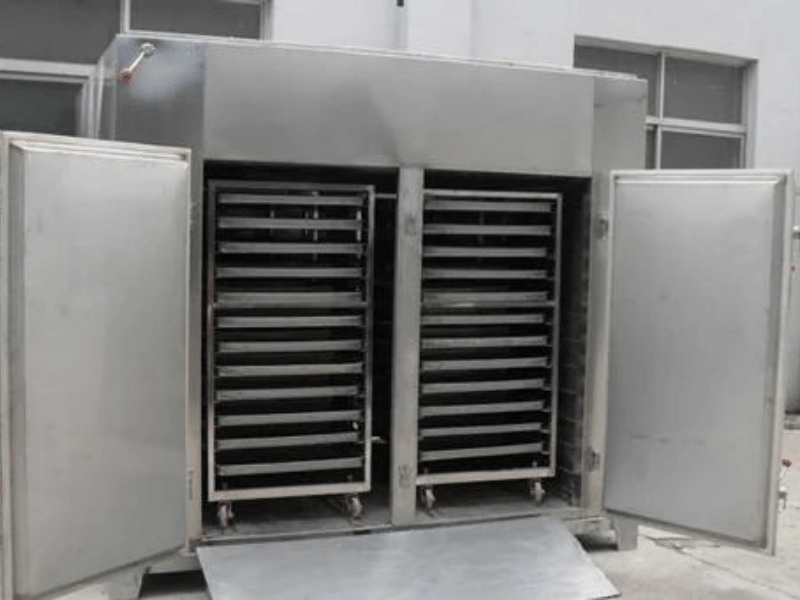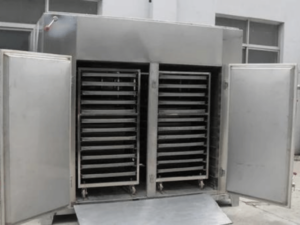Introduction:
Industrial ovens and dryers are vital pieces of equipment used in various industries to accomplish processes such as drying, curing, baking, and heat treatment. These versatile machines play a crucial role in manufacturing, food processing, pharmaceuticals, and other sectors. In this article, we will explore the fundamental aspects of industrial ovens and dryers, their types, applications, and the key factors to consider when selecting the right equipment for your specific needs.
Understanding Industrial Ovens and Dryers:
Industrial ovens and dryers are designed to generate and control heat for specific industrial processes. These robust appliances provide controlled temperatures, uniform heat distribution, and efficient airflow, enabling manufacturers to achieve consistent and high-quality results.
Types of Industrial Ovens and Dryers:
Batch Ovens: Batch ovens are the most common type, designed for processing a specific quantity or batch of products at a time. They are highly versatile, suitable for various applications, and offer precise temperature and time controls.
Conveyor Ovens: Conveyor ovens are ideal for continuous processing of large quantities of products. They feature a conveyor belt that transports the products through the heating chamber, ensuring consistent and efficient processing.
Tunnel Ovens: Tunnel ovens are commonly used for continuous processes such as baking, curing, and drying. They consist of a long heating chamber through which the products move on a conveyor system, maintaining consistent temperature profiles.
Cabinet Ovens: Cabinet ovens are compact, versatile, and suitable for small-scale applications. They provide excellent temperature uniformity and are often used for research and development, testing, and small-batch production.
Vacuum Ovens: Vacuum ovens are designed to operate under reduced atmospheric pressure, allowing for low-temperature drying or processing of heat-sensitive materials. They are commonly used in industries such as electronics, aerospace, and pharmaceuticals.
Applications of Industrial Ovens and Dryers:
Food Industry: Industrial ovens and dryers play a crucial role in food processing, including baking, roasting, drying, and dehydration. They ensure consistent product quality, enhance shelf life, and enable large-scale production.
Manufacturing: Industrial ovens and dryers are extensively used in manufacturing processes, such as curing coatings, heat treatment of metals, preheating components, and polymerization of composites. They facilitate efficient and controlled heat application, improving product performance and reducing production time.
Pharmaceuticals: In the pharmaceutical industry, industrial ovens and dryers are employed for sterilization, drying, and granulation processes. They adhere to strict regulatory standards, ensuring the safety and efficacy of pharmaceutical products.
Automotive: Industrial ovens and dryers find applications in the automotive industry for tasks like paint drying, powder coating, and curing adhesives. They contribute to the durability and visual appeal of automotive components.
Considerations for Selecting Industrial Ovens and Dryers:
Temperature Range: Evaluate the required temperature range for your specific process and ensure the oven or dryer can achieve and maintain those temperatures accurately.
Size and Capacity: Consider the size and capacity requirements of your production line to ensure the oven or dryer can accommodate the desired product quantity.
Airflow and Heat Distribution: Opt for equipment that offers uniform airflow and heat distribution to ensure consistent processing and product quality.
Energy Efficiency: Select ovens and dryers with energy-saving features, such as insulation, efficient heat recovery systems, and programmable controls, to reduce operating costs and environmental impact.
Safety Features: Prioritize equipment with safety features like temperature controls, alarms, ventilation systems, and automatic shutdown mechanisms to protect personnel and prevent accidents.
Conclusion:
Industrial ovens and dryers are indispensable tools


